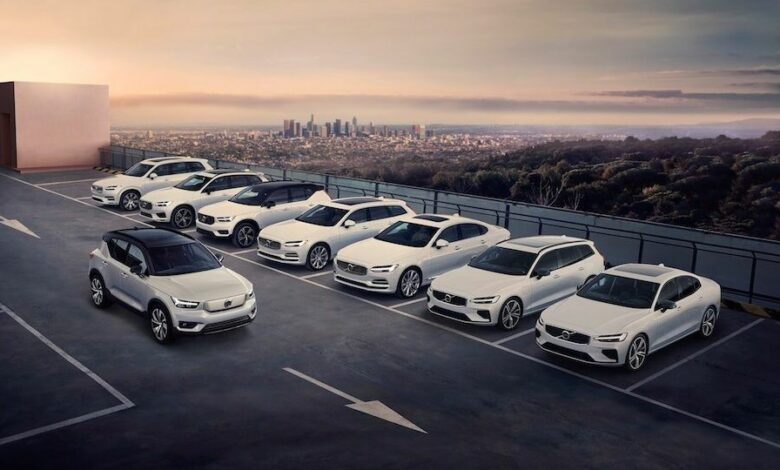Volvo signs up for offshore wind power

Sweden-based automaker Volvo Cars has partnered up with compatriot renewables developer Eolus to collaborate on the Västvind offshore wind power project off the coast of Gothenburg.
The partnership involves the 1 GW offshore wind power project supplying significant amounts of electricity to Volvo Cars’ operations at Hisingen in Gothenburg, including the new battery factory being constructed together with Northvolt, through the jointly owned company Novo Energy.
“The world is facing a massive challenge due to the climate crisis. Volvo Cars has a goal to only sell fully electric cars by 2030. We are working hard to reduce the carbon footprint of the entire lifecycle of the car, including the electricity used to manufacture the cars and their batteries. By committing to electricity from offshore wind power outside Hisingen, we want to secure our access to locally produced, renewable electricity at a reasonable cost,” said Johan Lannering, head of strategic collaborations at Volvo Cars.
Currently, there is a significant shortage of electricity production in Västra Götaland, and the demand for electricity is expected to almost double by 2030.
“The conditions in western Sweden require us to take action today to establish new electricity supply and at the same time secure our own supply of renewable electricity in the future. Additionally, this transition will create many new jobs in the automotive industry for the region,” added Lannering.
The Västvind wind power project has the potential to generate 4-4.5 TWh of renewable electricity annually, equivalent to the current electricity and power needs of the entire city of Gothenburg. The project is planned to enter the construction phase in 2027 and be completed in 2029. Eolus owns 95% of the project, and Gothenburg Port Authority owns the remaining 5%.
“Offshore wind power is the only energy source that can contribute the large amounts of new electricity production required in the region by 2030. West Sweden’s ambitions to become Northern Europe’s center for the future of electrified vehicles, battery manufacturing, and the world’s most climate-smart port logistics are not credible without a substantial increase in regionally produced renewable electricity. From that perspective, Västvind can be absolutely crucial,” concludes Per Witalisson.
Other carmakers have also signed up for renewable power sources. Mercedes-Benz is looking to cover a quarter of its electricity needs in Germany with offshore wind power starting in 2027 and has set a goal of covering 70% of its energy demand with renewables by 2030.
